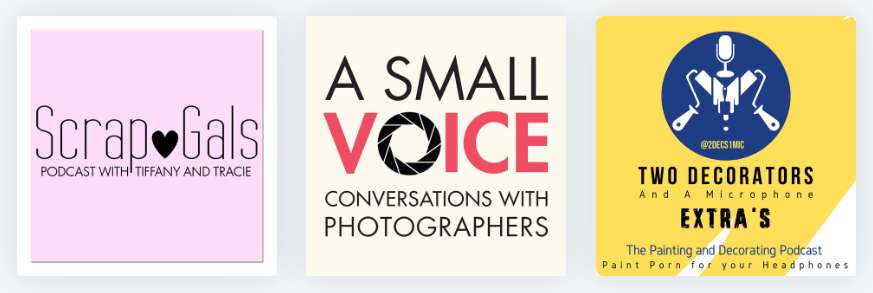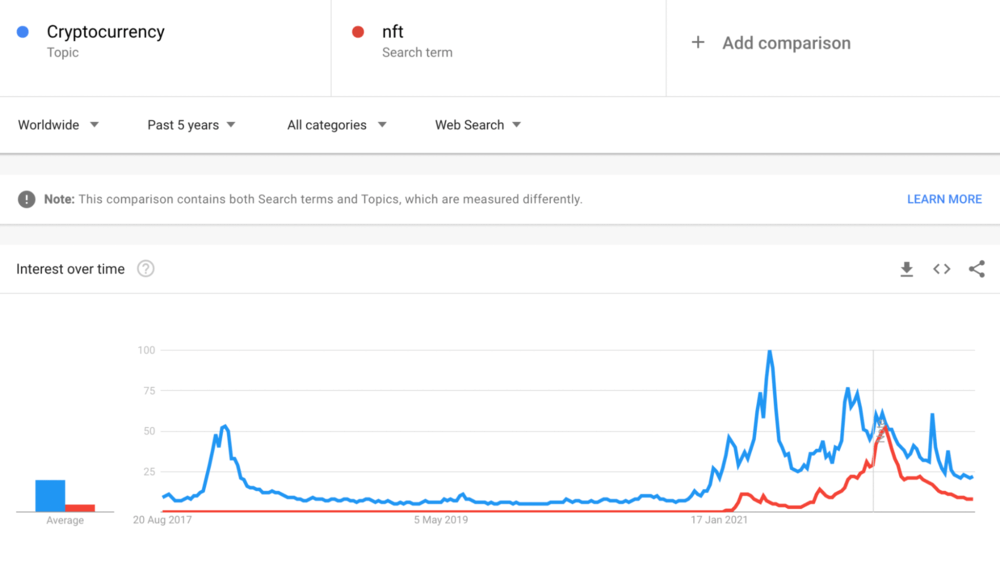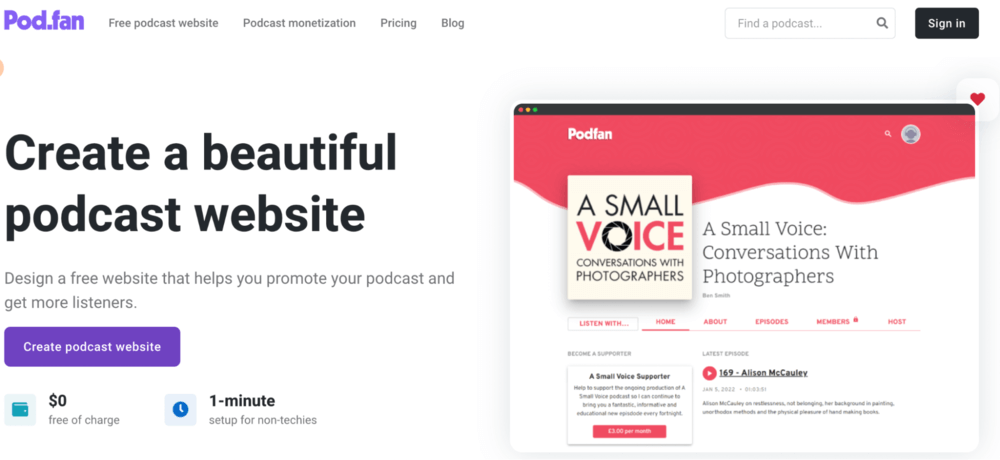How to Start a Podcast with Friends [For Free]
Let’s be honest; podcasts are the post-pandemic buzz around the globe. Else you won’t be here reading this.
But now that you’re here, let me tell you, you have the power and skillset to build a popular podcast. I’m serious!
In this article, I’ll help you learn how to start a podcast with friends from scratch without investing heavily or purchasing any online software - completely free of cost.
So, let’s walk you through a step-by-step process of becoming a successful podcasters.
Step 1: Pick Your Niche
Picking a niche is the first step to creating a fantastic podcast. Don’t get this wrong because your channel might crash even before it takes off.

You may find countless podcasts on the web, but the most successful ones tend to focus on a specific niche.
Do you know why?
Picking a niche for your podcast can help you to:
- Narrow down your content creation process
- Strategize podcasting business plan
- Give direction to marketing efforts
- Easily connect with your audience
But isn’t picking a niche cutting down your audience base? Yes, but look at the brighter side. You get a super targeted audience who’d engage with you more than a generic audience.

💡 Industry Insight: An engaged audience is of much more value than a generalized one.
For example, a podcast on knitting won’t be a deal-breaker for tech geeks. It’s for people having a passion for knitting (generally, women and handloom industries).
Likewise, dedicating a niche to your podcast makes it wholeheartedly for that group of people.
To find the perfect niche for podcasting, just follow my two-step process:
#1. Cover Topics You and Your Friends Love
Think about what you have in common with your friends. What would you naturally be talking about?
Something you love - football, traveling, writing, investments - figure out if you can create content for these niches for the long term.
Search the web to see what you got and what kind of your audience is interested in it.
#2. Use Online Tools to Get Insights
Communities such as Reddit and Quora can help you identify a popular niche.
Google Trends, however, is an excellent way to pick ideas from self-grinding or test ideas against each other.
Simply enter the keywords or phrases related to your preferred niche. Google presents you with a comprehensive report showing the trend for the keywords.
I was curious about Web3, so I searched it on Google Trends, and here’s what I got:

More people are searching this topic, which is a growing trend. You can jump on this wave and focus on the niche.
With that, you can also compare two or more keywords side-by-side, helping you to perform extensive research.

💡 Note: Google Trends also suggests related topics and what people are actually searching related to your keyword, helping you narrow down your hunt.
Step 2: Choose a Name for Your Podcast
Naming your podcast will affect your podcast branding in the long run.
Podcaster, Podcasting, Podmaster - don’t be redundant when choosing your podcast’s name. Instead, try to explore all possible names that go hand-in-hand with your podcast’s content.
Something like Freakonomics Radio, This American Life, Breakfast with Champions, Modern Love, etc.
I am certain that quickly and effectively describing your podcast’s tone, content, and personality is essential.
💡 Pro Tip: Using keywords in your podcast name can help you get friendly with search engines, thereby getting better visibility on the internet. 😉
Another thing to consider here is the length of your podcast’s name.
Now, this is important because unnecessary lengthy names can:
- Repel your listeners
- Make your podcast forgettable
- Insanely impact word-of-mouth marketing
According to research conducted by Pacific Content, 75% of podcast names are 29 characters or less - 3 to 4 words at max.

Let’s do some brainstorming with your friends. 💪
Use phrases, puns, or play of words to make your podcast stand out from the crowd.
But most importantly, check for the domain and social media availability of your podcast’s name to prevent last-minute tantrums.
Step 3: Get Free Podcast Recording and Editing Software
Gone are the days when you need to hire professionals or purchase lavish software to make a viral podcast.
With the advent of technology and the number of available resources, it’s never been easy or cheaper to record, edit, and launch a podcast.
You can get plenty of free editing software on the web. However, I have identified the best free podcast recording and editing tools you can leverage to ease your search.
- Audacity: The gold standard for free audio editing
- GarageBand: Audio editing software for mac
- Zoom: Best for interview-style podcasts
- Fission: A powerful, streamlined audio editor
The software mentioned above are free to use, so try them out and see which one suits you the best.
💡 Pro Tip: Apart from software, I suggest you invest in podcast equipment like a microphone, lights, and audio interface.
If you are going to record the show in one room with your friends, think about using condenser microphones. It’s more sensitive and can catch all sounds in the room.
Go for a dynamic microphone if you are recording online.
Step 4: Create Content Calendar and Stick to It
A successful podcast requires planning and strategy, and so should yours. Hold your friends accountable. Push each other and stay consistent.
In this digital era, everyone knows that consistency is the key to success (not just hard work 🙂).
All you need to do is block off an hour to plan your content calendar and stick to it.
To kick things off, spend 15 minutes brainstorming and writing down all the podcast episode ideas that come to your mind.
Next, validate the content ideas you’ve written.
Of course, not all the ideas are gold mines, so use tools like AnswerThePublic or Ubersuggest to check whether your thoughts match what people are searching for online.
You’ll also want to check out online forums like Facebook Groups, Quora, and Reddit and write down your ideal listener’s burning questions.
After you have enough engaging content, put them into a spreadsheet or prepare a calendar.
There’s just one more thing to do - record, edit, launch, repeat.
Step 5: Set Up Your Free Podcast Website with Podfan
The market is too competitive to get listeners for your podcast without promoting it. To follow up with marketing and promotions, the easiest way we figured out is by building a website for your podcast.
To do so, use free podcast website builders such as Podfan that help you create and launch a stunning website in less than a minute.

By creating a free website with Podfan, you can:
- Squeeze all your info and podcast details in one place
- Attract new users and gain better visibility via SEO
- Publish blog-like updates, share what’s new, and engage your listeners
- Ask for feedback, testimonials, and reviews on your content
Having a homepage for your podcast prevents your listeners from guesswork and builds a never-ending relationship.
That’s because now they know where they can view your content, listen to episodes, get updates on what’s next for them, and easily connect with you over social channels.
Step 6: Publish Podcast to Directories and Social Media
Another prominent method to get more listeners is to submit your podcast to popular podcast directories.
Here’s a list of directories you should focus on:
- Apple Podcasts
- Spotify
- Google Podcasts
- Podchaser
- Tunein
- RadioPublic
Besides listing your podcasts on directories, you can upload or share them on social media platforms with a good listener base like Youtube.
What’s more, drop a link to your podcast on platforms where people are most active, like Facebook, Twitter, and Instagram.
Instead of keeping the podcast to yourself, make it more visible to people. Divide these platforms between you and your friend(s) so everyone focuses on some of them.
The more often they see or hear from you, the more they’ll be interested in checking out what’s in it for them.
Wrapping Up
The best way to start a podcast as a beginner is with a friend(s).
You brainstorm ideas, push each other to stay consistent, and focus on marketing together.
I hope now you have a clear vision of ‘How to start a podcast?'- but you know what - that’s not enough.
Anyone can start a podcast, but the real challenge is to grow it from 0 to a million listeners over time.
Sometimes things won’t work, you might not get the best out of it, or you might even think of shutting it down. But if you keep grinding and don’t stop, nothing can stop you.
All you need to follow are the best podcast practices to ace the game.
Growth your podcast with Podfan
Create a free podcast website, and monetize your show via donations & memberships.
Create your podcast page- free of charge
- 1-minute setup